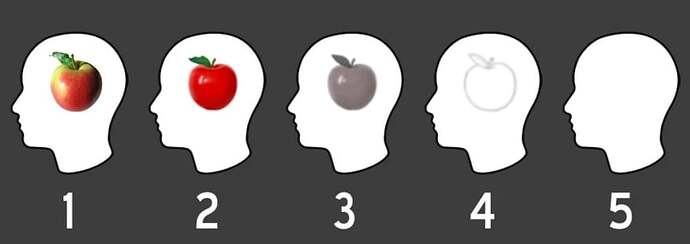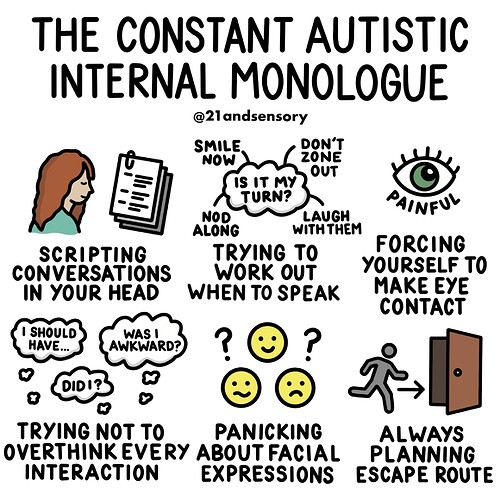Just a few thoughts strung together on the subject
according to NLP *), we have 5 lead-, input- and reference systems, with which we construct our "map of the real world“ and come into contact with it:
Visual
Auditory
Kinesthetic
Ophthalmological
Gustatory
…in individually different combinations.
As an auditory type, I am constantly babbling in my head and when I remember situations or anticipate them in my imagination, it always has to do with (internally) heard speech.
Visually, on the other hand, I’m pretty bad. Fretboard representations regularly overwhelm me and only since I read Michael Pillitière’s “Building the Better Guitar Scale“ have I regained hope. Sure, it’s visual too, but there’s a system with manageable chunks that I can keep track of and not just sheer chaos (“Get to know your fretboard” x 5000) that overwhelms me.
I think as “guitarists from next door” we should learn to make the best of what we have. Not all of us could have been born into the Meader, Gambale or Mancuso family and been supported accordingly.
*)Yes, I know that NLP (Neurolinguistic Programming) is controversial.
Formulated with the help of DeepL. I’m German.
Greetings, Klaus


